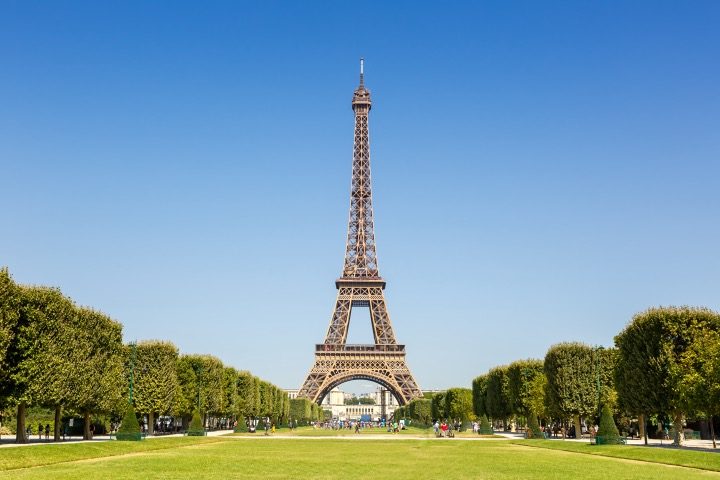
Moscow and Paris are now at each other’s throats, and while bullets may not be flying between the two powers, the countries are involved in unrestricted warfare by means of information and propaganda.
At least that’s the narrative being given by Aleksey Meshkov, the Russian ambassador to France. Speaking to the Russian newspaper Izvestia, Meshkov accused France of conducting a propaganda war against the Russian Federation and stifling objective reporting from independent sources, thereby turning the French people against Moscow.
As Russia Today (RT) notes, Meshkov was discussing the opinions of the French toward the war in Ukraine. Acknowledging that, despite a decline, the majority of the French people still have a positive view of Kiev and of France’s weapons shipments to Ukraine, the ambassador said it is “understandable” considering that France runs a “fairly strong and effective propaganda machine.”
“Over the past year and a half, I have not seen a single positive report about Russia in the press or on television. Some independent bloggers and politicians provide objective information, but it is drowned out in the volume of huge anti-Russian lies that are spread throughout all media. This, of course, has a psychological effect on the ordinary Frenchman,” Meshkov added.
He further speculated that, despite the public support, France will soon find itself unable to continue sending weapons to Ukraine. Meshkov pointed to the fact that officials in the French military have urged the government to put an end to “unrestrained” weapons shipments to Kiev, instead calling for a renewed focus on France’s own national security.
“Considering that the French today are scattered across virtually all regions of the world where there is tension, they no longer have enough weapons for their own needs,” said Meshkov.
As further reported by RT:
Last month, France’s Europe minister, Laurence Boone, called for an escalation of the information war against Russia and urged Brussels to help counter the “Russian influence strategy,” which supposedly aims to cast doubt on the merits of EU membership in candidate nations and ultimately “weaken the European Union.”
Russian officials have repeatedly accused Western nations of unbridled anti-Russian rhetoric while silencing Russian viewpoints. In an interview with Newsweek in September, Russian Ambassador to the US Anatoly Antonov said that while claims made by Kiev are routinely taken at face value by the US media, Moscow’s position has been censored and dismissed as “Kremlin propaganda.”
“The truth faces an exceedingly thorny path in reaching the US audience,” Antonov said, noting that the American public is nevertheless “prepared and even eager” to receive unbiased analysis and truthful information.
The recommendation by French military officials to refocus the nation’s resources on national security is telling in light of recent events in the European country. Over the summer, France was racked by riots among the nation’s Muslim population following the police killing of a 17-year-old Muslim boy named Nahel Merzouk.
The mayhem and destruction by the rioters included using gasoline to burn down an elementary school; dragging drivers from vehicles and beating them; reportedly releasing zoo animals, which then roamed the streets; desecrating a Holocaust memorial; and ransacking and looting stores, causing tens of millions of dollars in damages.
Muslim riots in France date back to at least 1979, when the Lyon suburb of Vaulx-en-Velin erupted after a local youth was arrested. This is believed to have been the first suburban riot in French history, no doubt occurring when it did because the suburbs were where Muslim immigrants were settling.
There have been at least a dozen Muslim riots since then, virtually always, ostensibly, over encounters with police. Notable was 2005 unrest that lasted three weeks, involved 274 towns, saw more than 9,000 vehicles torched, and saw a multitude of buildings burned or attacked, among other violent acts.
As commentator Monica Showalter put it in July: “This is about a power struggle, fueled by the rage of unchecked immigration, and rage-filled migrants who haven’t found the streets of Paris paved with gold, or at least any they think they’re entitled to. That it’s spreading to other countries suggests that this is a European Union-wide problem.”
There are parallels to the situation in the United States, which itself has seen mass riots related to dissatisfaction with policing, as well as acts of Islamic terrorism and crime, drugs, and poverty related to mass migration.
As with France, the United States has sent valuable weapons and large sums of money — more than $75 billion so far — to Kiev for use against the Russian military. Yet all the while, the federal government has failed to adequately protect the southern border, thereby enabling and allowing the migrant crisis that has brought cities across America to a breaking point.
But the Biden administration, much like the French government, has used a combination of propaganda and censorship to turn attention away from the nation’s own ills and to Russia instead.
Apparently, politicians who are unable or unwilling to address the challenges facing their own nation have learned the tactic of diverting the people’s gaze toward a foreign adversary.




